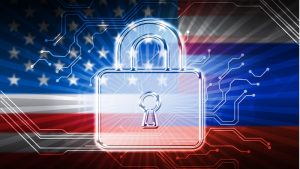Witnesses at today’s House Small Business Committee hearing stressed that community-based broadband expansion solutions are key to ensuring small businesses can best utilize broadband capabilities.
State and local governments are on the front lines of delivering economic recovery from the pandemic. Former Maryland Gov. Martin O’Malley emphasized the role technology will play in helping cities and states come back from the pandemic recession faster, stronger, and more equitably during a live webinar on June 15.
To help modernize how state and local governments (SLGs) deliver citizen services, SLGs must leverage community-based tech talent to help improve digital services initiatives, Jessica Cole, chief operating officer at U.S. Digital Response (USDR), explained during the State of GovTech 2021 digital conference.
While recovering from a cyberattack in late 2019, the City of New Orleans moved from multiple different disk storage platforms to the single flash platform, leveraging solutions from Pure Storage.
Elevate K-12, an instruction technology company, announced that it is partnering with school districts nationwide to create home-based live virtual learning options that will launch later this summer.
Rep. Yvette Clarke, D-N.Y., chair of the House Homeland Security Committee’s Cybersecurity Subcommittee, said today she hopes Congress will provide further funding for IT modernization and cybersecurity improvements to build on the recent $1 billion infusion into the Technology Modernization Fund (TMF), and the extra $650 million provided to the Cybersecurity and Infrastructure Security Agency (CISA) in the American Rescue Plan Act.
Sens. Rob Portman, R-Ohio, Patty Murray, D-Wash., and Angus King, I-Maine, introduced a bipartisan bill that aims to close the digital divide and promote “digital equity” utilizing $250 million in annual grants, according to a press release.
Voters in Tulsa, Okla., approved a $90.7 million bond that will be doled out over the next five years to fund a K-12 classroom technology overhaul.
The Education Department released guidance this month which intended to provide strategies for the safe operation of higher education institutions, as well as address the impact of COVID-19 on higher education students, faculty, and staff. Among other issues, the guidance specifically addressed helping higher education navigate online learning in a pandemic and broadband and device access for students, faculty, and staff.
Nongovernmental entities can now apply for some of the $5 million set aside to fund projects that will bring high-speed broadband infrastructure to underserved communities in Pennsylvania, Gov. Tom Wolf’s office announced.











